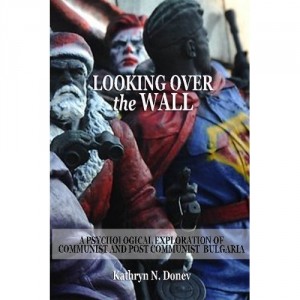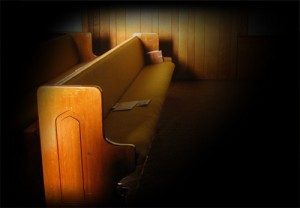Internationalization vs. Naturalization of the Church of God
 In the beginning of 21st century, when perspective and persona are changed by postmodern thinking, church planting is most important. Providing a strategy for church planting and growth is to serve as a roadmap to success for Bulgarian church leaders and people who have dedicated their lives to making a difference within the community of believers. It is our prayer that such strategy becomes part of the Great Commission given to the Christendom.
In the beginning of 21st century, when perspective and persona are changed by postmodern thinking, church planting is most important. Providing a strategy for church planting and growth is to serve as a roadmap to success for Bulgarian church leaders and people who have dedicated their lives to making a difference within the community of believers. It is our prayer that such strategy becomes part of the Great Commission given to the Christendom.
The process of transformation of Bulgarian communities in the United States toward a more contemporary and functional model of ministry will inevitably reflect on the process of internalization, which is taking place within the Church of God. The natural birth of the church, however, as described by the Bible does not include a process of internationalization in which one nation creates an environment for other nations in order for better representation. On the contrary, the Bible speaks of ecclesial equality represented by many ethnic groups naturalized in the body of the church. Naturalization in the church brings both equality and unity among its members. Internalization, respectively, resembles a process of mechanical assembling of a large mass of people under one name without giving them a unique nature that characterizes the community.
Further recognition of the ethnic groups of non-American-born believers represented within the Church of God in the United States will provide the ability to naturalize its infrastructure as a body, rather than artificial over force to internationalize a body of an already ethnically diverse community. In the beginning of the 21st century such strategy will give the Church of God the opportunity to successfully target cross-cultural communities across the United States and produce church growth in metropolis and large urban developments, where the strategies for growth based on its historical dominating rural culture have proven long-ineffective. Finally, such detailed focus on cross-cultural ministries will assure the productive attention not only to large ethnic groups, but also to small and growing cross-cultural communities, which will continually assure the cultural and ethnic diversity of the Church of God and will provide it with a realistic international appearance.
Excerpt from Analytical Overview and Church Planting Proposal for Bulgarian American Congregations Considering Cultural, Economical And Leadership
Dimensions
Repost: The Exodus of the Youth from Church: In Search of Answers to a Dark Dilemma
I recently sat in a lecture “Why Are Youth Leaving the Church?” I listened to the most recent statistics, compared one opinion to the next, looked at the latest church involvement research and even explored some emerging themes of why people in general leave the faith. All the information was very interesting and contained an impressive collaboration of ideas. The research does not lie and opinions are to be valued. However, honestly what good does this enlightenment do us when we sit back and do nothing to correct the problem? We are so used to youth leaving our church that we have become complacent with pews filled with “ancient dinosaurs” in the words of a young lady just last week. We have become so overwhelmed with data that we forget to look at the real picture of why our next generation of leaders are leaving. Or perhaps we do nothing because we simply don’t understand young people’s true motivation for leaving the church. The answers may be uncomfortable for some but they deserve deeper exploration.
Youth are leaving the church but this does not necessarily mean they all are leaving the faith. Many young people of today have much more faith than some of the pew fillers whom have their assigned seats with their pillows and blankets left to save their spots. So if this is the case that they still have a genuine relationship with Christ but simply don’t want to be within the four walls of religion, so to speak, should we not explore the million dollar question differently? We should not excuse away their leaving to agnosticism, postmodernism or neopaganism regardless of how cleverly it takes the focus off of the real concerns and sins of the “church.” It is not a very popular idea to confess the sins of the church which is ironic when we proclaim to be a house of confession. Perhaps confession is only good for the soul as long as the sins are not our own. Behind the irony rests a darker problem, one that is responsible for many young people leaving the church.
For years the church has been a place of hypocrisy and today’s young generation is one that is fed up with the dishonesty and is willing to take a stand. They are so disgusted they can no longer keep silent. They are not willing to “tweak the numbers” of the church financial records or work their way up the hierarchical ladder. They see through the masks and are not willing to compromise. Young people are tired of religious politics, bickering, back stabbing and lying. If we, the church, do not open our eyes to this now, if not yesterday, it will be too late.
This young generation is wandering looking for a place of refuge and they no longer find a safe place in the church house. The church regrettably is no longer safe. You cannot genuinely express your feelings, concerns or doubts without them being the topic of the message on the following Sunday morning. There is no longer trust within the church. The place of worship has turned into a place of gossip. A spiritual encounter has been replaced with a social gathering. The leadership of the Holy Spirit is no longer considered because we are too busy worrying about the opinions of others. So if by now you are still puzzled as to why the today’s youth are leaving the church then my heart is deeply saddened.
Nevertheless, we need to make a self-less effort and remember that the church does not exist for our personal entertainment. Realize it is not a prize to possess but is a treasure to be given away to the next generation. We must do whatever it takes to restore the tabernacle to its original purpose; to call its people back to holiness. We must be willing to give up our seat to the next generation before it is too late and there is no body left willing to fill the void.
Postscript: This article was written based on the following word the Lord gave me June, 2011: “The Church is not a prize to possess, but is a treasure to give away”.
Missions for the Third Millennium (2009-2010)
This is a re-post of popular articles on Missiology from 2009-2010:
M3: Missions for the Third Millennium – A Public Position (2010)
8 Simple Rules for Doing Missions in the Spirit (2009)
Church of God Eastern Europe Missions: Leadership, Economics and Culture (2009)
The Great Tribulation
Rapture of the Church
Spiritual Problems and Solutions from the 7 Churches of Revelation
Network of the Seven Churches of Revelation
Although the Book of Revelation has been vastly studied and interpreted throughout church history, usually the focus is on one major issue within the text, namely, the role and future of the church. The main reason for this has been the in-depth prophetic and pastoral messages to the Seven Churches. The value of the messages to the Seven Churches of Revelation is constituted by the fact that they are the last recorded Biblical messages to the Christian Church. For this reason, the letters to the Seven Churches obviously do not contain all of the usual elements used in the New Testament epistolary form.
Read the full text of the presentation (PDF)
20 SIGNS of the LAST DAYS
1. Spirit to be poured out on all flesh (Joel 2:28)
2. Israel to be restored (Deuteronomy 28:64, 30:3 Jeremiah 29:14, 30:3 Isaiah)
3. Universal apostasy (2 Thessalonians 2:1-4)
4. Good will be called evil and evil good (Isaiah 5:20)
5. The watering down of the gospel (2 Tim 3:5, Matt 15:9)
6. False prophets and false Christs (Mat 24:24)
7. Worldly knowledge to increase (Dan 12:4)
8. Earthquakes, floods, famines, plagues and diseases (Matthew 24 and Luke 21)
9. Peace taken from the earth (Matthew 24 and Luke 21)
10. Increase in the wickedness, murder and crime among men (Mat 24/Luke 21)
11. People will not believe the signs (2 Peter 3:3-4, Matthew 16:1-4)
12. Increase in persecution of Christians (Matthew 24:9, Mark 13:9)
13. The Spread of nuclear weapons as predicted in the Bible
14. Middle East tension
15. NEW tower of BABEL
16. GOG AND MAGOG
17. Revived Roman Empire
18. The Antichrist
19. The Mark of the Beast
20. FINAL SIGN: Gospel to be preached to all of the world (Mat 24:14/Rev 14:6-7)
2014: Year of the Glory of God
 2014 comes with a word from 1 Kings 8 where the glory of God has filled the newly built temple for the very first time. The same glory, which the prophet Isaiah will later see in the year when the king has died, and the prophet Ezekiel will see leaving the Holy of Holies.
2014 comes with a word from 1 Kings 8 where the glory of God has filled the newly built temple for the very first time. The same glory, which the prophet Isaiah will later see in the year when the king has died, and the prophet Ezekiel will see leaving the Holy of Holies.
When the glory fills the Temple, it is time for the leaders to pray for the nation. But while Moses had prayed in the same situation with a prayer of recollection of the past miracles of God, Solomon prays with a prophetic prayer for the future of the people of God.
And right there in v. 38 it states that the prayer made by “any man of all Thy people Israel can return the nation back to God.” Verse 39 continues with a supplication that contains a prophetic promise, which turns the personal perspective of one man into a destiny for the whole nation:
“Then hear thou in heaven thy dwelling place, and forgive, and do, and give to every man according to his ways, whose heart thou knowest; (for thou, even thou only, knowest the hearts of all the children of men;).”
The prayer of one man whose heart is known to God can return a nation back into the glory. Are you that man in 2014?
See also:
- When you change a GENERATION you change a NATION
- See why this is important for US today
- On the Glory of God
The Missional Church
 The nature of the church is missional, through the fact that its existence is powered by the Great Commission. The book summarizes the culture of today’s American spirituality and its relation to the apostolic church. The main question is, “What would a theology of the church look like that took seriously the fact that North America is now itself a mission field?”
The nature of the church is missional, through the fact that its existence is powered by the Great Commission. The book summarizes the culture of today’s American spirituality and its relation to the apostolic church. The main question is, “What would a theology of the church look like that took seriously the fact that North America is now itself a mission field?”
Five Key Insights
1. The missional nature of the church – The place which the church takes in the surrounding world/society defines its nature as missional. How it interacts with the surrounding worlds identifies the church’s response to the needs of individuals and groups of people and results in its success/failure to fulfill its original mission. A valid point was the statement that the witness of the missional church is characterized by its integrity.
2. Recovering missional identity – Recovering the church’s original New Testament identity has been a subject of discussion for many various ages in church history. The volume of works written about it has indeed increased in the latter part of the 20th century. The discussion in the book claims that as truth, self, and society are rediscovered in postmodernism, the churches of North America will recover its missional identity. Thus, the individual search of identity will reflect on the corporate search of the church as a community and as the Body of Christ. Chapter four further claims that the churches missional identity is shaped by the gospel of the reign of God which Jesus preached.
3. The Holy Spirit and the community of the missional churches – The Chapter on the Holy Spirit, although very informative, did not integrate the connection between the Spirit and Missional outreach to a practical paradigm, but it was mostly a theoretic and philosophical proposition.
4. On spiritual leadership – the discussion on spiritual leadership is based on the axiom that leadership is focused on the reign of God. Only then the church assumes its mission. Solving problems and creating unity within the church is reached through the same focus on the reign of God.
5. The secular surroundings – the vision of the church may not align with the secular surrounds. Actually, it may often completely contradict them fulfilling its role as a prophetic utterance. At the same time, social, political and economical factors may oppose the message and the mission of the church, thus creating an atmosphere in which the church grows against the grain.
Distinct Historical Memories of the Bulgarian Mindset
 Nearly 25 years after the fall of the Berlin Wall traces of communism still remain throughout Bulgaria. For those who lived directly under communism these traces include mental footprints which daily influence these individuals’ approach to life. For that generation who has no personal memory of communism, they find themselves indirectly influenced by the physical traces that will forever be a part of the undeniable history of Bulgaria.
Nearly 25 years after the fall of the Berlin Wall traces of communism still remain throughout Bulgaria. For those who lived directly under communism these traces include mental footprints which daily influence these individuals’ approach to life. For that generation who has no personal memory of communism, they find themselves indirectly influenced by the physical traces that will forever be a part of the undeniable history of Bulgaria.
Historically, Bulgaria, similar to other Balkan countries, has gone through turmoil, slavery and defeat. Though Bulgaria is the quietest and most obscure nation on the Balkan Peninsula, its people are confronted with the typical social obstacles that plague former communist-bloc countries: slow reform, economical, educational and cultural destitution and moral confusion.
Due to such rich history, Bulgarians have distinct historical memories and it is this distinctiveness that produces their national identity. These similar yet unique experiences of economic ordeals and historical legacy are what shape the Bulgarian mentality. The economical, educational, political and cultural crises have remained an indivisible part of Bulgaria’s reality. And Bulgaria’s evangelical community of more than 100,000 people has its own set of unique anxieties and hardships.
Excepts taken from “LOOKING OVER the WALL”
A Psychological Exploration of Communist and Post Communist Bulgaria
Copyright © April 12, 2012 by Kathryn N. Donev
© 2012, Spasen Publishers, a division of www.cupandcross.com
RELATED ARTICLES:
[ ] Obama, Marxism and Pentecostal Identity
[ ] A Psychological Exploration of Communist and Post Communist Bulgaria
[ ] Insight into Communist Agent Techniques in Bulgaria
[ ] The Bulgarian Evangelical Believer and Communistic Consequences
[ ] Distinct Historical Memories of the Bulgarian Mindset
[ ] National Identity and Collective Consciousness of the Bulgarian Community








